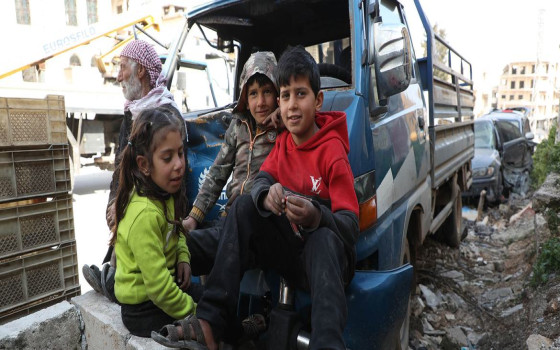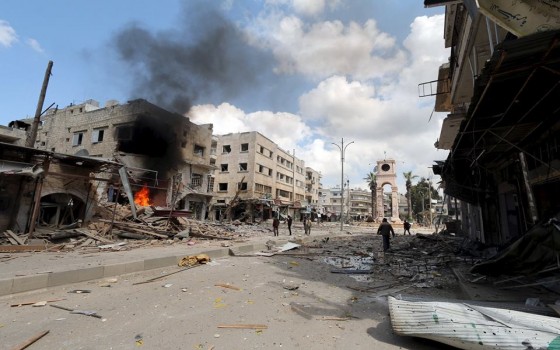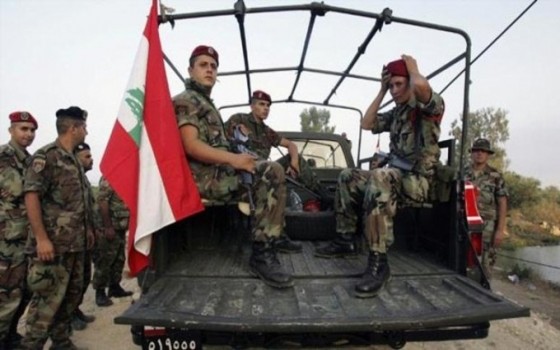
Following Al-Shara's praise for the US decision to lift sanctions, UN report: A battered economy and unemployment hinder the return of Syrians to their communities

- Europe and Arabs
- Thursday , 15 May 2025 10:8 AM GMT
Damascus - New York: Europe and the Arabs
Just hours after US President Donald Trump announced the lifting of sanctions on Syria, a new report issued by the International Organization for Migration revealed that the lack of economic opportunities and basic services represents the greatest challenge facing Syrians returning to their communities, highlighting the urgent need for international support to help Syria recover.
Syrian President Ahmad al-Sharaa considered the decision to lift sanctions on Syria a "historic and courageous decision" that opens the door to alleviating the suffering of the Syrian people. He emphasized that the unity and sacrifices of the people had a significant impact in changing the international public's view of the country.
On the economic front, al-Sharaa affirmed his country's commitment to facilitating investment conditions and opening its doors to investors, noting that "tribulations have taught us that our strength lies in our unity."
The transitional Syrian president emphasized that "Syria will no longer be an arena for sharing influence, and we will not allow it to be divided, nor will we give way to the revival of the narratives of the former regime," emphasizing that Syria "belongs to all Syrians without exception." According to the Brussels-based Euronews website, Syrian President Ahmad al-Sharaa affirmed that his country had overcome a "tragic phase" in its modern history, which had been under the rule of the "fallen regime." He noted that the spirit of belonging had returned to the Syrian people and that a window of hope had been opened again, despite the continuing effects of the painful past.
In a televised address to the Syrian people, al-Sharaa said that Syria "was liberated, its people rejoiced, and all sisterly countries rejoiced with them." He praised the role played by Syrian diplomacy in recent times through "shuttle tours to introduce the world to the new Syria."
He added, "We saw the eagerness of our brothers for Syria, and I saw the love of Syria in the eyes of Prince Mohammed bin Salman," referring to the growing regional support. According to the UN daily news bulletin, a copy of which we received this Thursday morning, a new report issued by the International Organization for Migration revealed that the lack of economic opportunities and basic services represents the greatest challenge facing Syrians returning to their communities, highlighting the urgent need for international support to help Syria recover.
The "Communities of Return Index Report" assessed conditions in 1,100 communities and neighborhoods between March and April, where nearly 1.87 million Syrians have already returned—both internally displaced and returnees.
The report stated that many communities face difficulty accessing electricity, clean water, and healthcare, while gaps in civil documentation prevent returnees from accessing basic services or claiming housing and land rights.
Livelihood opportunities are also scarce, as agricultural activity and local markets struggle to recover. Meanwhile, housing reconstruction is slow, and unresolved property issues continue to hinder long-term integration. Amy Pope, Director of the International Organization for Migration (IOM), said that Syrians are resilient and innovative, but they need significant assistance to rebuild their communities and lives. She emphasized that enabling Syrians to return to a country on the path to stability and progress is crucial for the country's future.
Amy Pope added: "IOM has revitalized its data collection capacity in Syria, and this report is our latest contribution to guiding humanitarian, recovery, and other evidence-based efforts to chart a better future for Syria and its people."
Decrease in the number of internally displaced persons
According to the latest report from IOM's Displacement Tracking Matrix, the number of internally displaced persons decreased slightly in April 2025 to approximately 6.6 million, compared to more than 6.7 million in March.
Since January 2024, IOM has recorded the return of more than 1.3 million internally displaced persons and approximately 730,000 arrivals from abroad. With its re-establishment in Damascus, IOM aims to address immediate humanitarian and recovery needs while fostering an environment conducive to peaceful, voluntary, and sustainable returns. This includes shelter rehabilitation, the distribution of life-saving relief items, and the expansion of property registry databases to support safe documentation, restitution, and dispute resolution for displaced populations in Syria.












No Comments Found